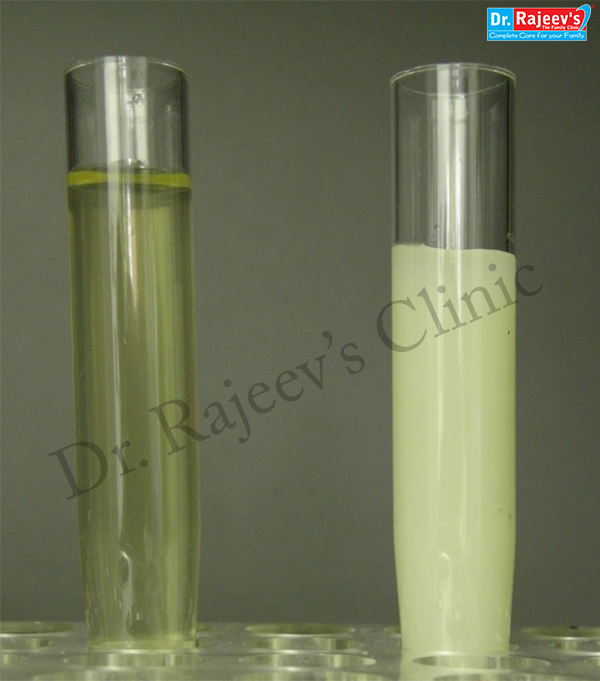

Chyluria is a morbid condition in which the urine contains chyle or fatty matter, giving it a milky appearance.
Difference between normal urine and urine containing chyle
Chyluria is a rare condition in which lymphatic fluid leaks into the kidneys and turns the urine milky white. It is most commonly associated with the parasitic infection Wuchereria Bancrofti, but can also have non-infectious causes.
Chyluria is a lymphatic flow disorder. This group of diseases is characterized by abnormal circulation of lymph fluid. Lymph vessels carry lymph fluid to veins, where it returns to the bloodstream. The fluid plays a crucial role in immune function and fat and protein transport.
When something disrupts or damages normal lymphatic flow, it can cause leakage of lymphatic fluid into the kidneys.
Chyluria has several potential causes, including:
• Parasitic infection (Wuchereria bancrofti)
• Congenital lymphatic malformations such as lymphangiomatosis
• Tumors
• Trauma
• Congenital syndromes such as Gorham-Stout, Noonan and Turner syndromes
• Lymphatic to vesical fistula

Milky appearance of the urine is the striking sign of Chyluria. Prolonged chyluria results in loss of weight and subcutaneous fat, hypoproteinemia, lymphopenia, and anemia.
Lymphography (imaging procedure) demonstrates the site, the caliber and the number of the fistulous communications.
Homeopathy can have a definite role to play in the chyluria treatment, due to the parasitic origin, trauma, abscesses, tuberculosis, etc. In these cases, Homeopathy can help to reduce the swelling of the lymphedematous limb as well control its progress. Homeopathy can also help in preventing superadded infection of the lymphedematous limb. Congenital cases in which structural abnormalities of the lymphatics are evident may not be helped much with medical treatment. Chyluria due to tumors may also have to be treated surgically and Homeopathy may have only a supportive role to play in such cases. A fair trial with homeopathy is suggested for all cases especially those that have not responded well to conventional treatment.